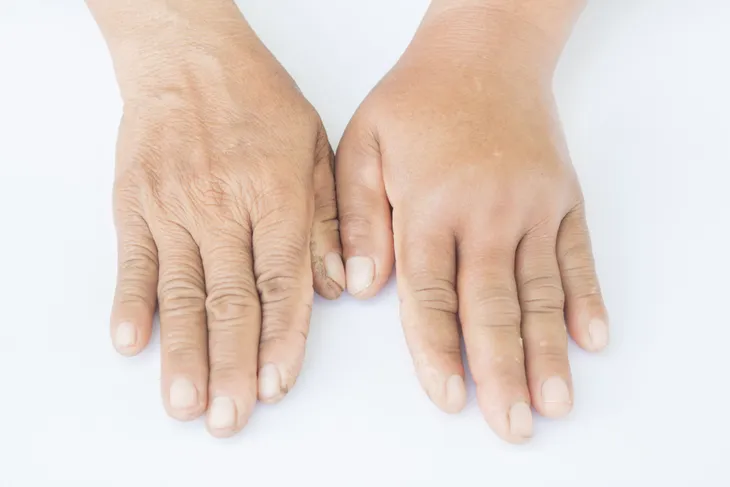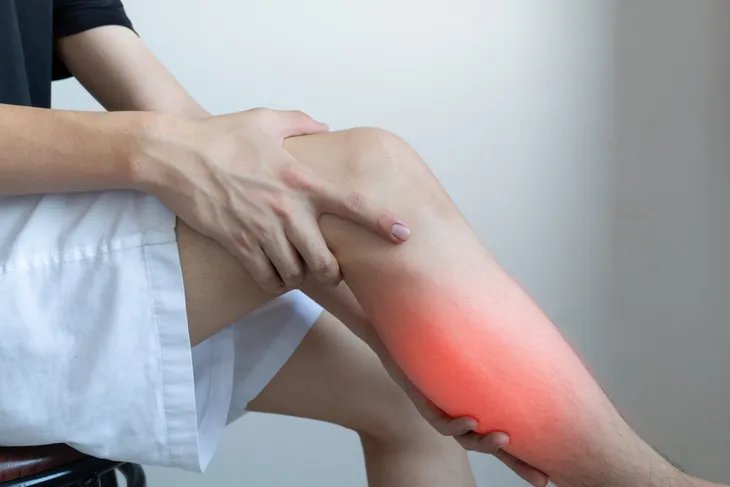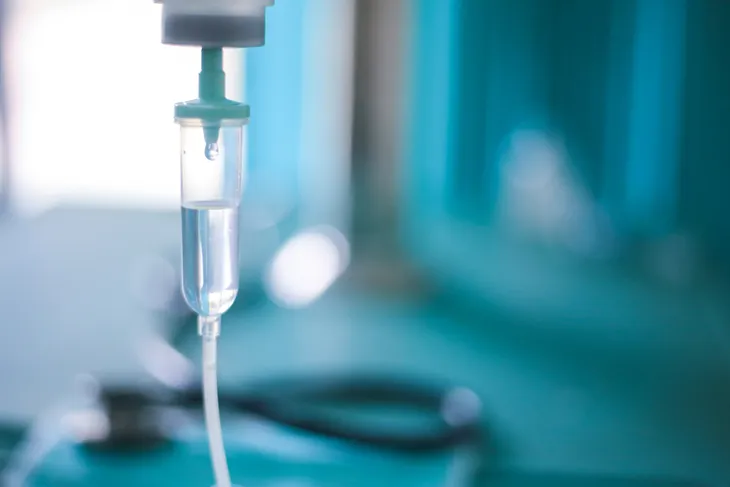There are many different types of genetic disorders, one of them being hereditary angioedema (HAE). This condition is mostly known to impact people with swelling across parts of the body, which can become life threatening if it were to affect major organs. According to Medicine Plus, this genetic disorder affects about one in 50,000 people.
Hereditary angioedema is a rare medical problem that people typically begin to see symptoms of as children. The triggers can begin to worsen in puberty, which is why it’s important for people to recognize the symptoms so they can receive proper treatment. The sooner a diagnosis is made, the sooner you’ll be able to manage your condition.
Here are common signs of hereditary angioedema and a rundown of some treatment options.
Body Swelling
The most recognizable symptom for hereditary angioedema is body swelling. WebMD says this is incurable but can be managed with proper treatment. Swelling can occur on different parts of the body and typically goes away on its own. But in some cases, swelling can be fatal without immediate medical attention.
People will experience varying numbers of attacks. You could have as little as one or two per year, or have one as often as every couple weeks. Those living with HAE may experience swelling of the:
- Mouth or throat
- Hands
- Feet
- Face
- Genitals
- Belly
 srisakorn wonglakorn / Shutterstock
srisakorn wonglakorn / ShutterstockAbdominal Pain
Another part of the body where swelling can occur is the abdomen. According to Healthline, swelling in this region accounts for half of HAE attacks. This particular type of swelling comes with its own set of signs and can be potentially life-threatening if a patient goes into hypovolemic shock.
Signs that your gastrointestinal tract is experiencing a hereditary angioedema attack include:
- Severe stomach pain
- Nausea
- Vomiting
- Diarrhea
- Dehydration
 Bannasak Krodkeaw / Shutterstock
Bannasak Krodkeaw / ShutterstockThroat Swelling
Another dangerous part of the body that can swell up during a hereditary angioedema attack is the throat. Unfortunately, this occurrence can be common. Healthline says that about 50 percent of people diagnosed with HAE will have at least one throat-swelling event.
Since the inflammation can be fatal if it closes your airway, it’s vital that you call 911 and seek immediate medical attention if experiencing this symptom. Some signs that your throat is swelling up include:
- Change in voice quality
- Hoarseness
- Difficulty swallowing
- Difficulty breathing
 GBALLGIGGSPHOTO / Shutterstock
GBALLGIGGSPHOTO / ShutterstockFatigue
While bodily swelling is what this disorder is mostly known for, there are other symptoms that hereditary angioedema can cause. These symptoms can often be early warning signs that happen several hours before swelling begins.
One symptom that can be related to HAE is fatigue. It’s important to note that many warning signs of HAE can be related to other health conditions, which is why receiving a diagnosis based on your pattern of symptoms is crucial.
 fizkes / Shutterstock
fizkes / ShutterstockHeadache and Muscle Aches
From head to toe, hereditary angioedema can take a toll on the entire body. Some people may experience headaches due to the onset of swelling that’s set to occur in the hours before an attack.
Additionally, your body may have some muscle aches. This could be an indicator of where the swelling is about to appear on the body.
 CactusG / Shutterstock
CactusG / ShutterstockSkin Tingling and Rash
People with hereditary angioedema may feel sensations in their skin prior to swelling. Healthline says it can start with skin tightness and tingling that will gradually progress to extreme swelling.
Another telltale sign that may occur due to an attack is a non-itchy rash called erythema marginatum. It appears round with a pale-pink center and surrounded by a slightly raised red outline. Medicine Plus says this is something about one-third of people with this condition will experience.
 ream sukanya / Shutterstock
ream sukanya / ShutterstockNausea
One symptom that can have an impact on your everyday health is nausea. You may feel like you’re going to vomit and feel an uneasiness in the stomach that won’t go away.
Nausea can be a symptom of many health problems, specifically gastrointestinal diseases. Healthline says it’s symptoms like these that can overlap with other illnesses. That’s why getting diagnosed for proper treatment is crucial.
 Monkey Business Images / Shutterstock
Monkey Business Images / ShutterstockShortness of Breath
A more serious symptom of HAE that people may experience is shortness of breath. It’s possible that this symptom and an outbreak of hereditary angioedema can be a result of lifestyle-related triggers.
WebMD says some of them include stress, anxiety, and physical activity. Some medications could also cause an attack. These symptoms could be what’s causing shortness or breath and potentially HAE swelling.
 Lipik Stock Media / Shutterstock
Lipik Stock Media / ShutterstockPrescription Medications May Help
If you’ve gone to the doctor to address your symptoms and receive a diagnosis for hereditary angioedema, then you’re finally on the right track to managing your condition. One way that you might receive treatment is with prescription medications.
Some medications that may be used to treat or prevent attacks include:
- Orladeyo
- Berinert, Cinryze, or Haegarda
- Ruconest
- Kalbitor
- Firazyr
 David Smart / Shutterstock
David Smart / ShutterstockIV Fluids and Oxygen
Unfortunately, some people may experience a severe attack from hereditary angioedema that requires more than just medication to treat. For example, if a patient becomes hypotensive.
Someone may require a large amount of intravenous fluids to stabilize their wellbeing. Oxygen therapy may also be necessary, depending on the symptoms, to improve their condition.
 Numstocker / Shutterstock
Numstocker / ShutterstockDiet and Lifestyle Changes
There are various triggers that may worsen symptoms related to hereditary angioedema. WebMD says common ones include:
- Stress or anxiety
- Minor injury or surgery
- Colds or flu
- Physical activities such as typing, hammering, or pushing a lawn mower
- Taking certain medications
- Using birth control or hormone replacement therapy
After receiving a diagnosis, your doctor may help to better understand your condition and what may trigger an outbreak. You can then make changes to your lifestyle in order to lower the frequency of attacks you experience.
 novak.elcic / Shutterstock
novak.elcic / ShutterstockWhen to See a Doctor
People with hereditary angioedema will typically experience symptoms as a child and during adolescence. If you or your child is experiencing unexplainable swelling, then you should see the doctor to receive a proper diagnosis. They can help you to better understand this genetic disorder and come up with a treatment plan.
You should see a doctor if symptoms are getting in the way of living your life comfortably. Remember, HAE can be fatal if swelling occurs in areas such as the throat or abdomen. You should seek immediate medical attention if you are having difficulty breathing or experiencing severe pain.
 Billion Photos / Shutterstock
Billion Photos / Shutterstock
